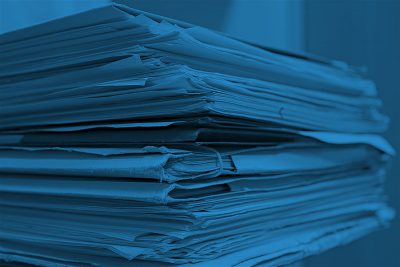What Changes do I Need to Know About Before Preparing my 2019 Financial Statements?
Reading time: 2 minutes 30 seconds
The Financial Accounting Standards Board (FASB) did not release any significant new accounting rules in 2019. But there have been several key decisions to incorporate when preparing annual financial statements under U.S. Generally Accepted Accounting Principles (GAAP).
The big news is major accounting rule deferrals
Accounting Standards Update (ASU) No. 2019-09 works to delay the effective date of the updated instructions for long-term insurance contracts. For any public business companies, except smaller reporting companies (SRCs), the effective date is pushed back until fiscal years which begin after December 15, 2021. For all other companies, the effective date is postponed to fiscal years which begin after December 15, 2023.
Furthermore, ASU 2019-10 defers the effective dates for three other ASUs as follows:
- ASU 2016-02, Leases. For public business entities (including SRCs) and some nonprofit organizations and employee benefit plans, the effective date remains in place for fiscal years beginning after December 15, 2018. For all other organizations, the start date will be deferred to fiscal years beginning after December 15, 2020.
- ASU 2016-13, Financial Instruments — Credit Losses: Measurement of Credit Losses on Financial Instruments. For public business entities not meeting the definition of an SRC, the effective date remains fiscal years beginning after December 15, 2019. For all other organizations, the start date will be delayed to fiscal years that begin after December 15, 2022.
- ASU 2017-12, Derivatives and Hedging: Targeted Improvements to Accounting for Hedging Activities. For public business entities (including SRCs), the effective date remains as fiscal years beginning after December 15, 2018. For all other entities, the effective date is deferred to fiscal years beginning after December 15, 2020.
FASB’s New Philosophy for Effective dates
ASU 2019-10 also updates the FASB’s philosophy for setting the effective dates for all significant Accounting Standards Updates (ASUs) from this point on. It will group organizations into two overall buckets, as follows:
Bucket 1. Large public companies that are SEC filers and don’t meet the SEC definition of SRCs, and
Bucket 2. Entities other than large public companies, including SRCs, private companies, nonprofit entities, and employee benefit plans.
Generally, the FASB plans to set the effective dates of major ASUs for Bucket 2 entities at least two years after the initial effective dates for those organizations in Bucket 1.
Recognizing Revenue
Starting in 2019, private companies that follow GAAP must use an updated five-step method to recognize revenue from long-term contracts. It is significant to note; public companies that made the switch in 2018 report that the process was more difficult than expected.
Unfortunately, many private companies run into two significant challenges. First, they underestimate the amount of work it takes to apply the updated rules — and second, many accounting software solutions are unable to handle the changes, including the requirements for disclosure. If you haven’t started implementing the updated revenue recognition guidance, contact us to get you back on track.
Other FASB Developments of Note
Throughout 2019, the FASB has issued some different narrow-scope accounting rules, which may affect your organization. These changes include guidance that:
- Updates the standards for reporting share-based payments to both customers and nonemployees.
- Extends the scope of private company alternatives for reporting goodwill to nonprofit organizations.
- Clarifies major accounting standards updates
Contact us
Contact JLK Rosenberger to discuss how the changes to GAAP, including various proposed amendments, will affect your financial statements in 2019 and beyond. Call us at 949-860-9890 or click here to contact us. We look forward to speaking with you soon.
© 2019


